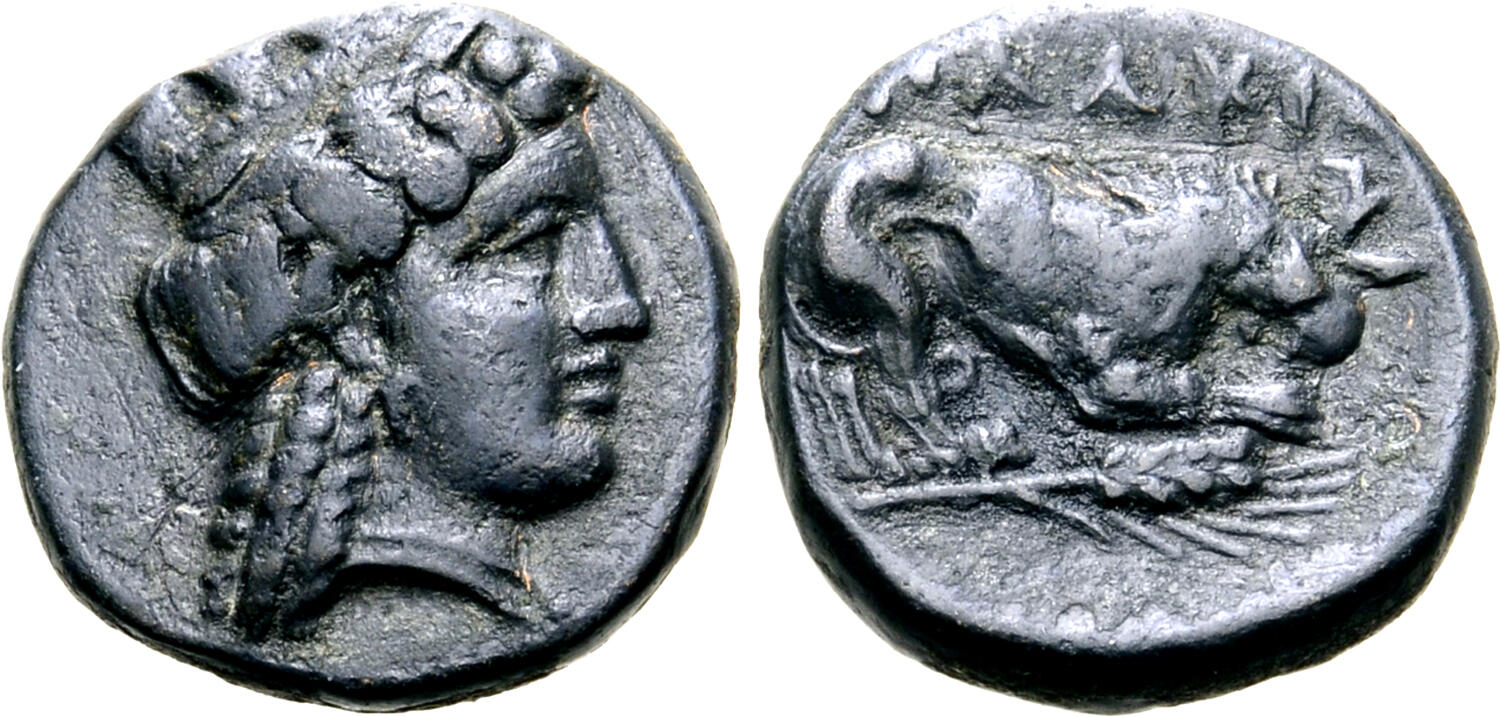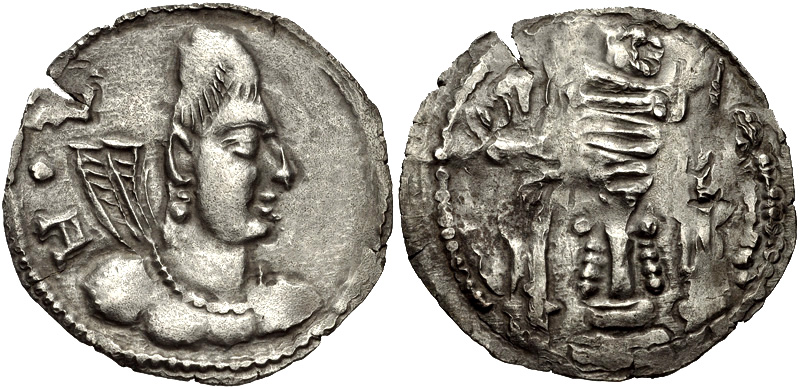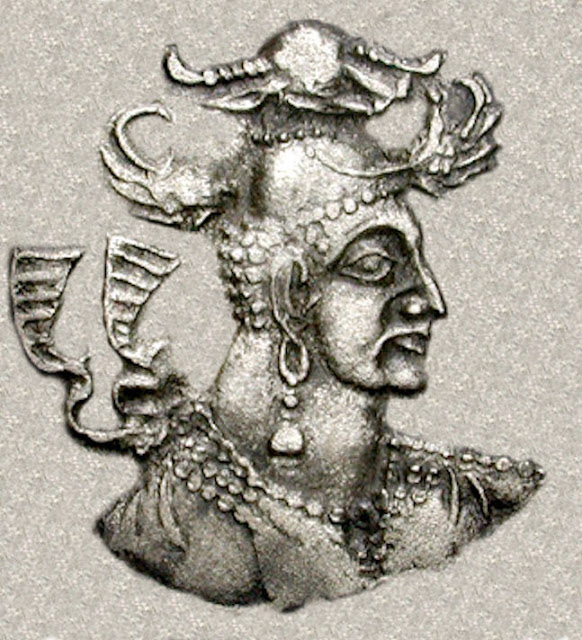Turreted head of Kybele and lion with wheat - from Mysia, Plakia/Placia 4th C. BCE
"What the language of the Pelasgi was I cannot say with any certainty. If, however, we may form a conjecture from the tongue spoken by the Pelasgi of the present day - those, for instance, who live at Creston above the Tyrrhenians, who formerly dwelt in the district named Thessaliotis, and were neighbours of the people now called the Dorians - or those again who founded Placia and Scylace upon the Hellespont, who had previously dwelt for some time with the Athenians - or those, in short, of any other of the cities which have dropped the name but are in fact Pelasgian; if, I say, we are to form a conjecture from any of these, we must pronounce that the Pelasgi spoke a barbarous language. If this were really so, and the entire Pelasgic race spoke the same tongue, the Athenians, who were certainly Pelasgi, must have changed their language at the same time that they passed into the Hellenic body; for it is a certain fact that the people of Creston speak a language unlike any of their neighbours, and the same is true of the Placianians, while the language spoken by these two people is the same; which shows that they both retain the idiom which they brought with them into the countries where they are now settled.
The Hellenic race has never, since its first origin, changed its speech. This at least seems evident to me. It was a branch of the Pelasgic, which separated from the main body, and at first was scanty in numbers and of little power; but it gradually spread and increased to a multitude of nations, chiefly by the voluntary entrance into its ranks of numerous tribes of barbarians. The Pelasgi, on the other hand, were, as I think, a barbarian race which never greatly multiplied."
-Herodotus, The Persian Wars 1.57 - 1.58
Source:
Quote:



Comments
Post a Comment